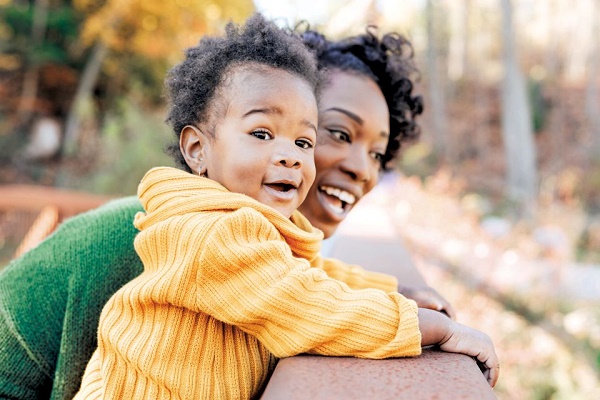“When you’re happy, I’m happy.” This is something almost every parent has said to their child at one time or the other. It is after all why you do all you, make sacrifices and all. You want your child to be happy. It’s been said that happy kids become successful adults.
So honestly, we don’t blame you for being so invested in their happiness. So what makes a child happy? That’s apart from candy and video games and unlimited hours of screen time. Oh and a new iphone and sleepovers every weekend. When it comes down to what really matters, how do you raise a happy child? Scientists attempted to find out in a study. The first thing they did right, was to hear from the horse’s mouth. They went on to ask children what made them happy.
Science Finds Out What Makes A Child Happy
Children in a 2009 study were asked to list the things that made them happy. Not surprisingly, material items featured on the lists (1). Some parents may fear that, without a lot of money, they can’t afford the things that will make their children happy.
However, there is good news. Material possessions are not the only things that make children happy – children in the study also listed people and pets, hobbies, sports and achievements as things that bring them happiness.
More importantly, material items are not the most important things for children’s happiness. When children in the study were asked to choose between things on their lists, a clear winner emerged, and it wasn’t material items. It was people and pets. Children consistently removed hobbies, sports, achievements and material items in order to keep people and pets on their lists.
Interestingly, when children did choose to keep material items on their list, it was because the items were related to relationships with other people. For example, mobile phones were considered valuable because they allowed children to talk with friends and family.
The research suggests that spending time with people and pets is more important for children’s happiness than material items. This is great, but what if you’re unable to spend as much time with your children as you would like to? What if your work, study and family commitments mean that you are among the many time-poor parents?
It Does Take A Village…
Don’t despair. The children in the study said that parents were not the only people to bring them happiness. Relationships with other family members, friends, teachers, coaches and neighbours were also important. So, the research suggests that supporting children to have safe and appropriate connections with other trusted adults and peers, and encouraging children’s safe interactions with pets, may be ways to support children’s happiness, especially for parents who are unable to spend as much time with their children as they wish.
Most parents have heard about the concept of a “village” cooperating to bring up children. The research described here supports this idea, by showing that relationships with a variety of people (and pets!) are important to children’s happiness. Basically, it seems that children agree that it does indeed “take a village to raise a child”.
Get Happy Yourself
The first step to happier kids is, ironically, a little bit selfish. Your happiness directly affects the happiness and success of your kids – dramatically. Happy parents make happy kids, and this is not merely due to genetics.
Teach Them To Build Relationships
We all know that learning about relationships is important. But how many parents actually spend the time to teach kids how to relate to others? It can start with encouraging kids to perform small acts of kindness to build empathy. This not only builds essential skills and makes your kids better people, research shows over the long haul it makes them happier.
Expect Effort, Not Perfection
Note to perfectionist helicopter parents and Tiger Moms: cool it. Relentlessly banging the achievement drum messes kids up. The research is very consistent: Praise effort, not natural ability.
Teach Optimism
Want to avoid dealing with a surly teenager? Then teach those pre-teens to look on the bright side. Author Christine Carter puts it simply: “Optimism is so closely related to happiness that the two can practically be equated.”
Rig Their Environment For Happiness
We don’t like to admit it, but we’re all very much influenced by our environment – often more than we realize. Your efforts will be constrained by time and effort, while context affects us (and children) constantly. What’s a simple way to better control a child’s surroundings and let your deliberate happiness efforts have maximum effect? Less TV.
This article was first published on AfricaParent.com
Copyright 2024 TheCable. All rights reserved. This material, and other digital content on this website, may not be reproduced, published, broadcast, rewritten or redistributed in whole or in part without prior express written permission from TheCable.
Follow us on twitter @Thecablestyle

